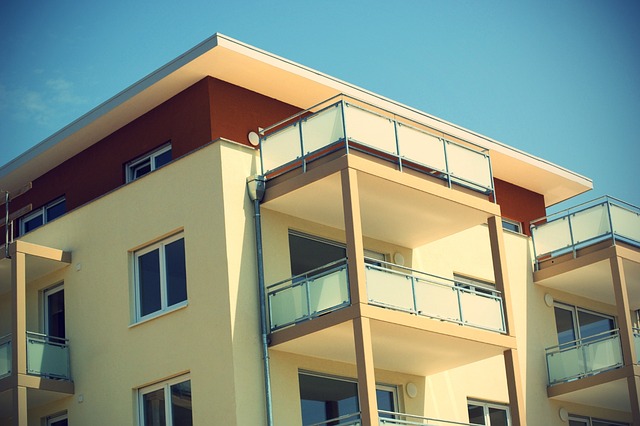Students navigating lease agreements must understand essential clauses like rent details, security deposits, subletting restrictions, maintenance responsibilities, and termination policies to protect their rights and ensure a positive living experience. Thoroughly reading and comprehending these legal terms is crucial for avoiding disputes and effectively managing rental obligations.
Moving into a new place is exciting for students, but understanding lease agreements is crucial. This comprehensive guide navigates the essential knowledge every student renter needs to know. From grasping basic lease agreements to deciphering vital lease clauses, this article equips you with the tools to make informed decisions. Learn about your rights and responsibilities, navigate security deposits, and resolve common issues. By mastering these key areas, students can ensure a smooth living experience.
- Understanding Lease Agreements: Basics for Students
- Key Lease Clauses Every Student Should Know
- Rights and Responsibilities of Student Renters
- Navigating Security Deposits and Payment Terms
- Common Issues: Addressing Lease Breaches and Disputes
Understanding Lease Agreements: Basics for Students

Understanding Lease Agreements: Basics for Students
When it comes to leasing an apartment or room, students often find themselves delving into a world of unfamiliar legal terms and complex lease clauses. As a student renter, it’s crucial to grasp the fundamentals of a lease agreement before signing on the dotted line. This knowledge equips you with the power to negotiate favorable conditions and protect your rights as a tenant. A lease is a legally binding contract between a landlord and a tenant, outlining the terms and conditions for living in a property during the specified tenancy period. It’s essential to read and comprehend every section of the agreement, paying close attention to details like rent amount, payment due dates, security deposits, and lease duration.
Focus on identifying key lease clauses that directly impact your student experience, such as subletting restrictions (important if you plan to share your space), maintenance responsibilities, and termination policies. Understanding these aspects allows you to make informed decisions and avoid potential pitfalls. Remember, it’s okay to ask questions or seek clarification from the landlord or a legal professional to ensure you’re fully aware of your rights and obligations as a student renter.
Key Lease Clauses Every Student Should Know

Every student renter should familiarize themselves with key lease clauses before signing their rental agreement. These legal terms and conditions are crucial as they outline rights, responsibilities, and expectations between the landlord and tenant. Understanding these clauses can help students protect themselves and avoid potential pitfalls during their tenancy.
Some essential lease clauses every student should know include rent amount and due date, pet policies, subletting restrictions, maintenance and repair obligations, and termination or eviction procedures. Rent amount and due date specify financial commitments, while pet policies clarify if pets are allowed and any associated deposits or restrictions. Subletting restrictions govern the ability to temporarily let out a portion of the rental property, maintaining landlord approval. Maintenance and repair obligations outline who is responsible for fixing various issues within the unit or common areas. Lastly, termination or eviction procedures detail the steps to be taken if either party fails to adhere to the lease terms.
Rights and Responsibilities of Student Renters

As student renters, understanding your rights and responsibilities is crucial for a smooth living experience. Leases are legally binding documents that outline both parties’ duties; thus, it’s essential to read and comprehend every clause. Students should be aware of their right to live in safe and habitable conditions, with maintenance requests promptly addressed by the landlord or property manager.
Additionally, knowing your responsibilities is key. This includes paying rent on time, keeping the property clean and well-maintained, and adhering to any house rules or community guidelines. Student renters are often expected to provide notice when vacating, ensuring a smooth transition for the next tenant. Understanding these dynamics empowers students to advocate for their rights while fulfilling their rental obligations.
Navigating Security Deposits and Payment Terms

Navigating security deposits and payment terms is a crucial aspect of leasing for student renters. It’s important to understand lease clauses related to these topics, as they can significantly impact your financial situation. Security deposits act as a form of protection for landlords, ensuring tenants cover any potential damages or unpaid rent. When moving in, students should receive a detailed breakdown of the deposit amount and how it will be refunded upon move-out, based on the condition of the property.
Payment terms vary across leases but typically involve monthly rent payments. Students should clarify if rent is due at the beginning or end of each month and whether late fees apply. Some landlords may also include provisions for automatic rent payment through direct debit or online platforms, streamlining the process for students with busy schedules. Understanding these lease clauses allows students to manage their finances effectively, ensuring they meet their rental obligations without unexpected financial strains.
Common Issues: Addressing Lease Breaches and Disputes

Student renters often face unique challenges when it comes to lease agreements, leading to common issues that require attention. Lease breaches are a frequent problem, especially with changing student lifestyles. For instance, subletting or having roommates can sometimes be against lease clauses, resulting in potential disputes with landlords if not clearly addressed beforehand. Students should thoroughly read and understand their lease, ensuring they know their rights and responsibilities regarding modifications.
Disputes may arise from differing interpretations of lease terms, particularly concerning maintenance, repairs, or rent adjustments. Clear communication and documentation are vital when addressing these issues. Students should document any maintenance requests and keep records of conversations with landlords. Understanding the mediation processes and knowing when to involve legal support can help resolve disputes effectively, ensuring a positive rental experience despite challenges.
